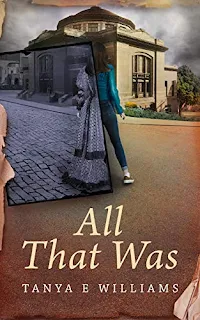Recently, an interviewer and fellow author suggested that Mexican Gothic by Silvia Moreno-Garcia might be a good comp title
for Silk: Caroline’s Story. A comp
title, by the way, is a familiar title that others might compare to a book of
interest—for example, she might say to prospective readers, “If you liked Mexican Gothic, then you’ll love Silk.”
How wonderful to be compared to that amazing work! After that comp-title suggestion, I of course
picked Mexican Gothic as my fun
vacation beach read while we went to Daytona on vacation last week. I’d even already put it on my e-reader, which
I actually did not take onto the beach this time, just read in our condo when I
wasn’t on the beach or by the pool with a paperback.
So glad I read it, even if I don’t typically go for that
genre. I should have been clued into the
type of story it was, given the term ‘gothic’ in the name, but I went into it expecting
something a bit more… like Silk! Hah,
comp titles work both ways! I do
recognize some of that same energy there, especially around Jessie (so if you were
most fascinated by Jessie, you will likely be enthralled by Mexican Gothic). Of course, Mexican Gothic’s main character, Noemí,
is different than any of Silk’s characters, at least for the first book of my
trilogy; I’d say she’s most like Vivian, actually, in Homespun, the last installment of The Silk Trilogy—whom the
interviewer has yet to meet. Okay, I’m
warming to the idea of it as a comp title, except I really don’t think they’re
the same genre! Silk has just a touch of Southern Gothic in a book that others
compare to Jane Austen, whereas Mexican
Gothic eventually swallows you whole with the horror. Oh wait, I did see
her writing compared to Charlotte Brontë’s, actually... I think Moreno-Garcia
uses the technical category of ‘speculative fiction’ instead of horror,
perhaps. Maybe speculative fiction is a broader category? I almost never pick
up horror reads on purpose. Stephen King
put me off that genre the first time I dipped my toes in those murky waters as
a teenager, but more writing like this may make me quite the fan.

Mexican Gothic is
about a young socialite in the 1950s who ventures away from Mexico City out to a rural village community
in the mountains to check on her cousin Catalina. Newly-married Catalina has sent
a worrisome letter, but when Noemí’s father tried to follow up with Catalina’s
husband, Virgil brushed off his concerns. The gothic mansion that Noemí arrives
at was founded perhaps a century before by Virgil’s English ancestors who
reopened the old silver mine there; it had re-closed during the Mexican
Revolution, and the family’s glory has since faded. The grand house is full of
mold and operates with only a skeleton of the staff it once held. Noemí is
determined not to abandon her cousin Catalina, but the longer she stays, the
more the manor’s strange energy starts to affect her, too.
I loved this wonderfully-written, suspenseful story! It’s now ranked as my #1 horror novel of all
time, and I highly recommend it to anyone not too faint of heart. The Mexican setting added a somewhat-exotic-to-me,
fascinating air to the whole novel. So interesting to see the world from Noemí’s
point of view, as Mexico really is the center of her world, truly a country
full of variety—she’s from urban, modern, massive Mexico City; she leaves for
the English manor near the rural village in the mountains, where she yearns for
a carefree vacation to Acapulco—and to go off to their National University. Mexico is her
world!
I did have the feeling, however, that this novel was perhaps
initially written as a vampire story.
The pale residents of the manor, the missing mirror no longer on the
wall near the entrance, the stained-glass windows instead of more reflective
ones, the old host only drinking strange-tasting wine at dinner and foregoing
food… Perhaps that was just to set the mood
or to throw out a red herring. I felt
misled, especially since there was never much alternative explanation given for
these overtly-vampirish tendencies.
Nevertheless, it somehow gave me a familiar, “Ooh! Vampires!” reaction
that maybe made the actual scenario a little more familiar-feeling than it
would otherwise have, as it was so peculiar in the end. Well-done, but unique (to me, at least, as
someone who rarely reads ‘speculative fiction’). If Moreno-Garcia hadn’t gone that route, I
wonder if I’d have had fewer hooks to really sink into the story with? Such an artfully-crafted novel MUST have done
this on purpose, simply to help draw us readers in. In the end, however, the
antagonists were not so prosaic as vampires (who are not always prosaic, of
course, but this was the classic setting!).
No, this book was increasingly fascinating as I read along. Speaking of which—I wasn’t hooked from page
one. I’d read many pages before I knew
that I really wanted to continue with it, so if it doesn’t grab you straight
off, stay with it!
Again, I don’t normally read horror, so what seems ‘extreme’
to me may seem relatively tame to aficionados of the genre. I wouldn’t know.
And that ‘extreme’ graphic horror only lasted for a few pages, really, towards
the end. So don’t be scared off based solely
on my review. Perhaps Mexican Gothic is horror for people who
don’t read horror. I personally highly
recommend it. Five stars. Amazing,
gripping novel set in Mexico.
Not to be missed.










